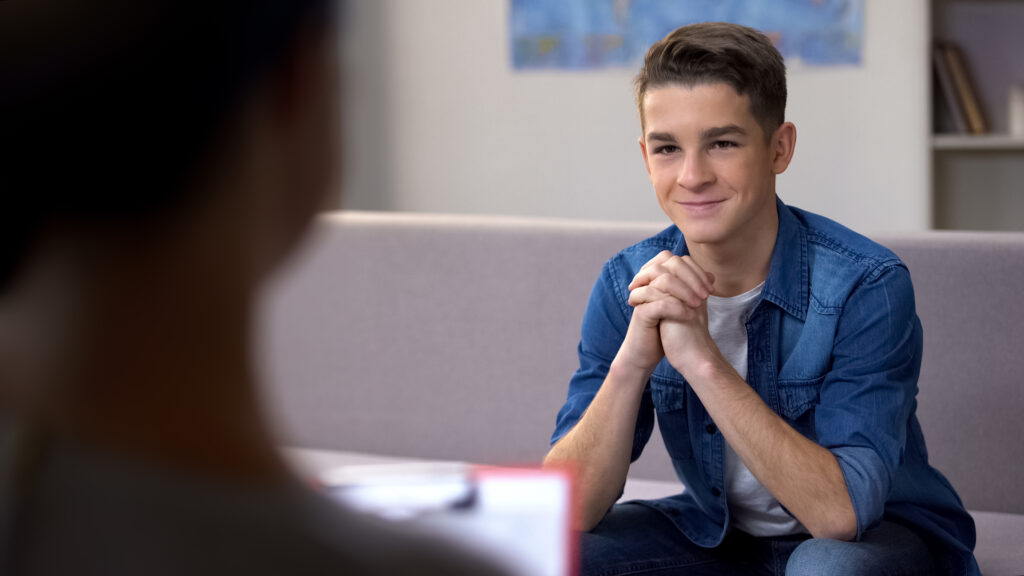Earlier this year, a Phoenix mother received the kind of call every parent dreads—her teenage child was in crisis and needed urgent help. Hours later, in the emergency room, a social worker raised the possibility of residential treatment.
“It felt like I was being told I couldn’t help my own child,” she recalled. “Like I’d failed somehow.”
This reaction is common among families facing similar decisions. Since 2020, emergency psychiatric visits for teens have increased, leaving many parents asking themselves a difficult question: Does needing residential care mean we’ve failed?
The answer is no, recognising the need for more support isn’t a failure. It’s another way of standing by your child when it matters most.
The Problem with Traditional Group Homes
Most group homes work like this: Teen has a crisis, teen goes to facility, teen gets better, teen comes home. Everyone hopes the problem is solved.
Here’s what actually happens. Teens do well in residential care. They follow schedules, learn coping strategies, and participate in therapy. Their parents feel relieved and hopeful.
Then the teen comes home. Same bedroom, same family arguments, same school stress. Within weeks, many teens are struggling again. Parents feel confused and defeated.
A 2024 study published in Child and Adolescent Psychiatry and Mental Health found that when family relationships improve during treatment—particularly emotional security between teens and their parents—symptoms of depression tend to improve as well. This suggests that involving families meaningfully in treatment can be a key factor in long-term recovery.
How Some Programs Do Things Differently
Some residential programs have started doing something different: they include families from day one. Not just to get updates or sign paperwork, but as an actual part of the treatment.
Every week, families attend sessions where they learn alongside their teen. They discover things they never imagined—like how those constant “how are you feeling?” questions can actually make anxiety worse, or how checking their room every hour makes teens feel watched rather than cared for.
One family went through a similar experience with their teenage child, who was engaging in self-harming behaviour and struggling with eating. During family sessions, they came to a difficult realisation: their frequent questions about food and routine checks had been increasing their child’s anxiety, rather than offering the support they intended.
It took them months to stop asking “Did you eat yet?” every time their child walked into the kitchen. One parent admitted, “I still get the urge to ask, especially in the mornings.” Others have shared that old habits are hard to break—but they’re learning new ways to show support that feel more effective.
In Phoenix, this is especially important. Families here face real economic pressures: rent that goes up every year, unstable jobs, and limited health insurance. All of that intensifies when your child is in crisis. These programs understand the challenges parents face, but they also recognise and value the effort parents put into their child’s recovery—even when circumstances make participation difficult.
Phoenix Families Have Specific Needs
Phoenix is approximately 42% Hispanic or Latino. Many of these families make decisions together, including grandparents and godparents. Excluding family from a teen’s mental health treatment can feel unnatural.
Economic factors matter too. Many Phoenix families face challenges like rising housing costs, job instability, and limited access to healthcare—all of which add strain during a teen’s mental health crisis. While residential programs can’t fix these systemic issues, the most effective ones show awareness and flexibility when possible, such as helping coordinate logistics or adjusting expectations.
The Data Shows It Works
A 2024 study followed almost 5,000 teens in residential treatment that included family therapy. Researchers measured two things: how secure teens felt with their parents, and how depressed they were.
The results were eye-opening. Not only did both areas improve, but something interesting happened: the connection with parents improved first, and then depression started to decrease.
What this tells us is something many parents already suspected: when the relationship gets repaired, everything else has a better chance of working.
How to Tell if a Program Actually Includes Families
A lot of programs will tell you they include families. But when you get there, you realise they only call you when there’s an emergency or for paperwork.
How do you know if they’re really going to include you?
They’ll contact you regularly, not just when something goes wrong. They’ll ask about your family—how things work at home, what traditions you have, what works for you and what doesn’t. If you’re from a Latino family where grandma makes the decisions, a good program will want to meet grandma, not ignore her.
They’ll also be realistic about your life. If you work two jobs and can’t come at 2 PM on a Tuesday, they’ll find other options. If your family expresses concern differently—more directly, more emotionally, more quietly—they’ll work with that instead of judging it.
What Families Learn That Sticks
The goal isn’t just to survive this crisis. It’s for you as a family to come out knowing how to face the next one.
In youth group homes in Phoenix that actively involve parents, families learn to recognise early warning signs—not just the obvious ones like not eating, but the subtle ones like gradual mood changes or slowly isolating themselves. They learn to have difficult conversations without them turning into fights. They make plans for future situations: “If this happens again, we’re going to do this, not that.”
And something they didn’t expect: they started to see themselves as a family that can face difficult things, not as a broken family.
The Reality — and the Hope
Teen mental health challenges can affect the entire family. But they can also be a turning point that helps families become more connected and resilient.
One parent shared that they never thought their family would get through the experience together. They felt like they had failed and worried their child would resent them for agreeing to residential care. But now, they’re having conversations they were never able to have before.
If you’re exploring residential options in Phoenix, look for a program that involves you throughout the process, rather than keeping you on the sidelines. Families who take an active role in recovery tend to build stronger relationships and see more lasting progress.
It’s not about being a “better” family—it’s about having practical tools and a shared understanding to navigate challenges when they arise. Life with teenagers will always bring change, but with the right support, these moments can become opportunities to grow together.
Disclaimer
The information provided in this article is for general informational and educational purposes only. It is not intended as, and should not be considered a substitute for, professional medical, psychiatric, psychological, or therapeutic advice, diagnosis, or treatment. Always seek the advice of a qualified healthcare provider with any questions you may have regarding a medical or mental health condition.
Open Medscience does not endorse any specific treatment facility, programme, healthcare provider, or approach mentioned in this article. Inclusion of any service or anecdotal experience does not imply a recommendation. The views and experiences shared are those of the individuals involved and do not necessarily reflect the opinions of Open Medscience or its contributors.
While efforts have been made to ensure accuracy, Open Medscience makes no guarantees regarding the completeness, timeliness, or reliability of the information presented. Use of this article and any linked resources is at your own discretion and risk.
If you or someone you know is experiencing a mental health crisis, please seek immediate help from a licensed professional or call emergency services.
home » diagnostic medical imaging blog » Health and Wellbeing »



